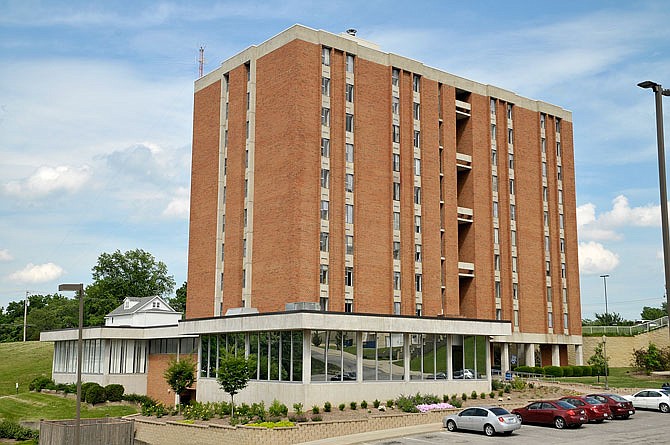Initial testing of Dawson Hall rooms has found higher counts of a common airborne mold in three of the 14 rooms tested, Lincoln University officials reported Thursday.
Additional rooms are being tested, and more results could be available later today.
"There are no Missouri or federal laws that set limits or standards as to what types or levels of mold exposure or of mold presence are healthy or unhealthy," the state Health and Human Services department said on its webpage, health.mo.gov/living/environment/indoorair/mold.php.
Testing by an outside firm began Tuesday in LU's Dawson Hall after several students and parents complained over the weekend of possible mold in several rooms of the high-rise residence hall, just east of the Page Library.
Those complaints prompted LU officials to move about 15 students Sunday from Dawson Hall to another on-campus location, which hasn't been identified.
Lincoln officials said students in the rooms with higher mold counts will be given the option of returning to their Dawson Hall rooms or remaining permanently in their new rooms.
Even though the school still is awaiting all results, LU officials have conferred with the Health and Senior Services department (DHSS) to discuss the initial findings.
The state department told the school "there are roughly 150,000 types of mold present in indoor and outdoor environments.
"Mold always will be found in testing," the DHSS information reported because it is everywhere. "There will always be some level of mold. Mold testing does not determine a health risk, but airborne molds are a common allergen."
The mold identified in the Dawson Hall testing was penicillium/aspergillus.
Mold can cause structural damage by decomposing wood, drywall, carpeting and other porous building materials, the state agency said, but the presence of mold does not present a health risk in most cases.
"Individuals with allergies to certain types of mold may exhibit allergic symptoms such as sneezing, runny nose, upper respiratory irritation, cough and eye irritation," the DHSS webpage explains. "Exposure to excessive amounts of mold can also cause an increase in the frequency or severity of asthma symptoms.
"If you suspect you or someone in your family may be experiencing health symptoms because of exposure to mold, you should contact your health care provider to receive diagnosis and treatment."
Based on the testing results and the DHSS information, Lincoln said it will address the issues in those rooms with higher counts, but it did not provide details of what that work would entail.
The university also will work with DHSS "to determine ways to control mold, which begins with finding ways to control moisture," the LU statement said.
One student's mother told the News Tribune on Monday Lincoln has a "black mold" problem.
School officials have not confirmed that allegation.
But, the Health and Senior Services department said: "Currently there is no conclusive scientific evidence linking the inhalation of black mold spores or any type of mold in the indoor environment to any illness other than allergy symptoms.
"The term 'toxic' is an inaccurate description of this mold, (and) there are many common molds that are black in color."
Lincoln's statement noted: "The safety of our students is our utmost concern, as is their comfort level in the areas they call home."

